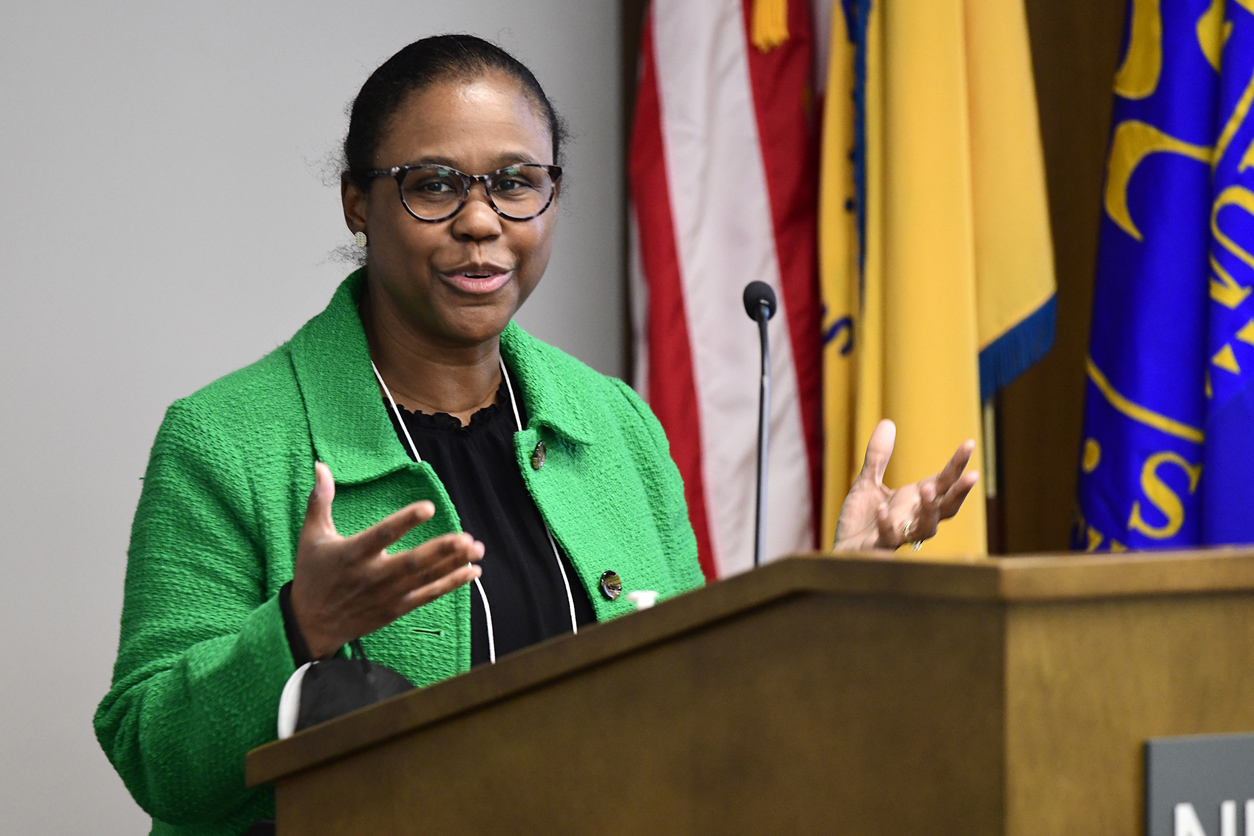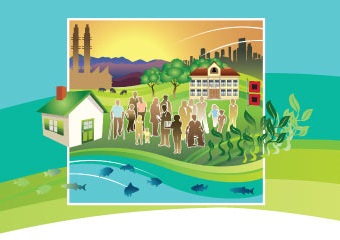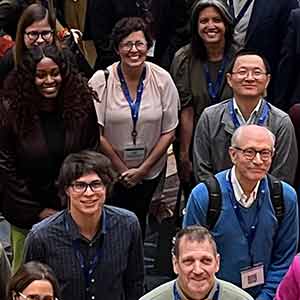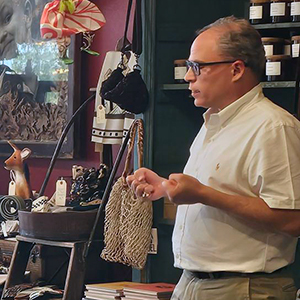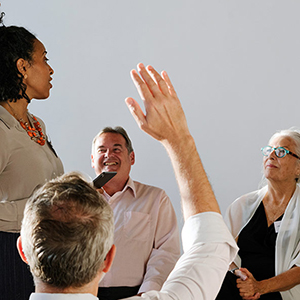The Partnerships for Environmental Public Health (PEPH) network meeting Feb. 20-22 brought together NIEHS-funded grantees, community leaders, and NIEHS staff for the first in-person meeting since 2020. PEPH 2024 broke down programmatic silos to create a space for its nearly 200 attendees to easily converse, learn from, and engage with those outside of their program or research area. Organized around the theme of engaging diverse partners to address climate change and environmental justice, the three-day event included workshops, posters, and panel presentations.
“It is so wonderful to see so many of you after all these years,” said PEPH lead Liam O’Fallon as he welcomed attendees. “Since the Partnerships for Environmental Public Health is about connecting across the various programs, the purpose of this meeting is to facilitate exchange and recognition of shared experiences and knowledge that we all bring to the table when addressing environmental public health.”
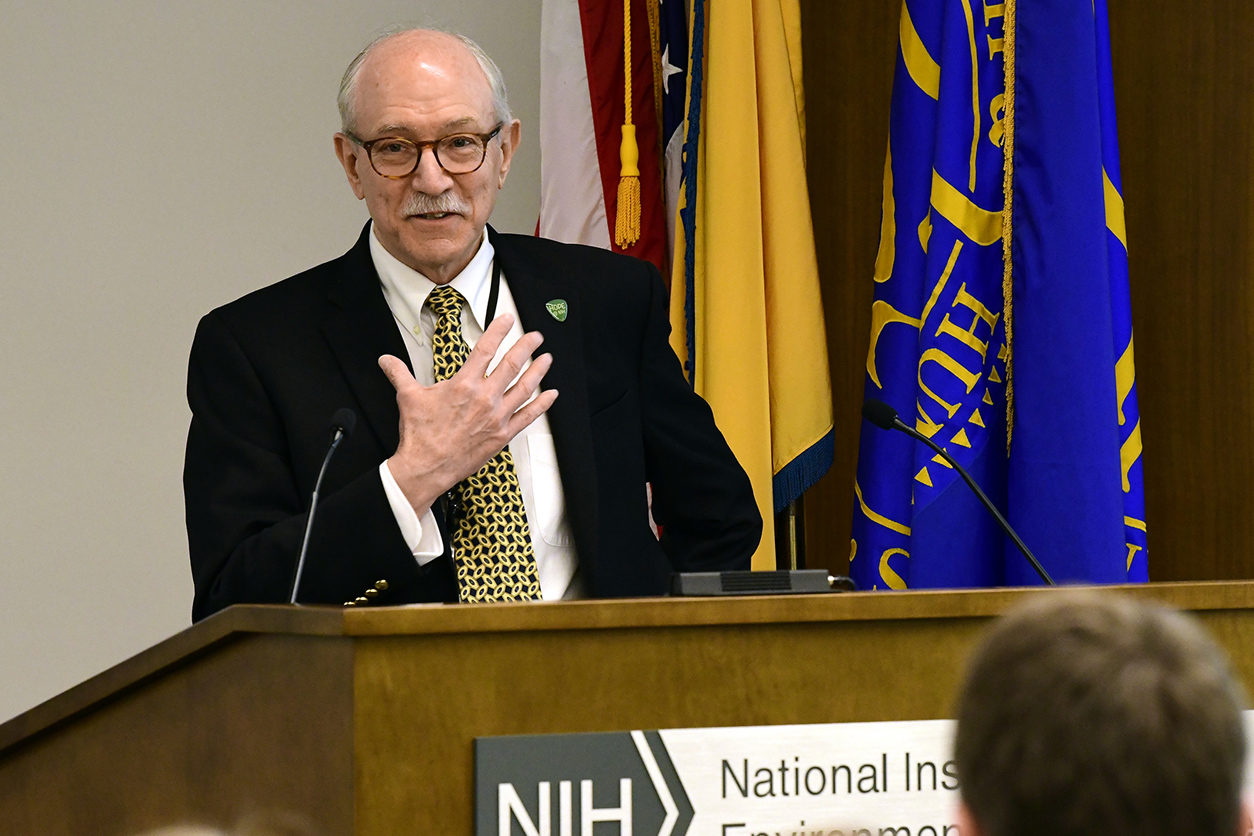
Engaging multiple generations
The opening session highlighted effective strategies for working with diverse age groups of community members. Victoria Triana, with the UNC Center for Environmental Health and Susceptibility discussed the Youth Engaging in the Science of Resilience program. She highlighted strategies for youth engagement, including creating a sense of community through cohorts, using technology such as sensors and apps, utilizing young leaders to connect with young people, and engaging families to ensure long-term involvement of children.
Natalie Sampson, Ph.D., highlighted the success of the Environmental Health Research-to-Action program. This summer program with an ever-evolving focus has introduced high school students to environmental concepts such as environmental health and justice, air and water monitoring, mapping, and policy education. The students also meet with environmental organizers, elected officials, environmental lawyers, risk communication experts, GIS experts, and community-based leaders.
Advising early-career researchers
In a highly interactive session, fellows from Agents of Change in Environmental Justice and the JPB Foundation shared their experiences as early-career researchers. They reflected on opportunities presented through the fellowships, such as learning to communicate science to community groups, conducting team science, and making connections outside of a selected discipline.
Panelists discussed the following opportunities for improvement.
- Training fellows in policy deliverables.
- Training on and leaning into new, and popular, types of communication modalities to make scientific knowledge accessible.
- Increasing diversity in leadership teams to reflect diversity in cohorts.
Panelists also provided advice to the audience about protecting their mental health and preventing burnout.
Highlighting accomplishments
PEPH 2024 included two days of poster presentations. The 64 posters covered a range of topics addressing climate change and environmental justice. Several student presenters described the work they were doing as part of larger NIEHS-funded center programs.
“It was inspiring to hear from the students and how they have been engaged in the different aspects of research,” said O’Fallon. “I’m glad they were able to attend and participate in the meeting.”
Learn more about the posters by reading the abstracts online.
Conversations with the Director
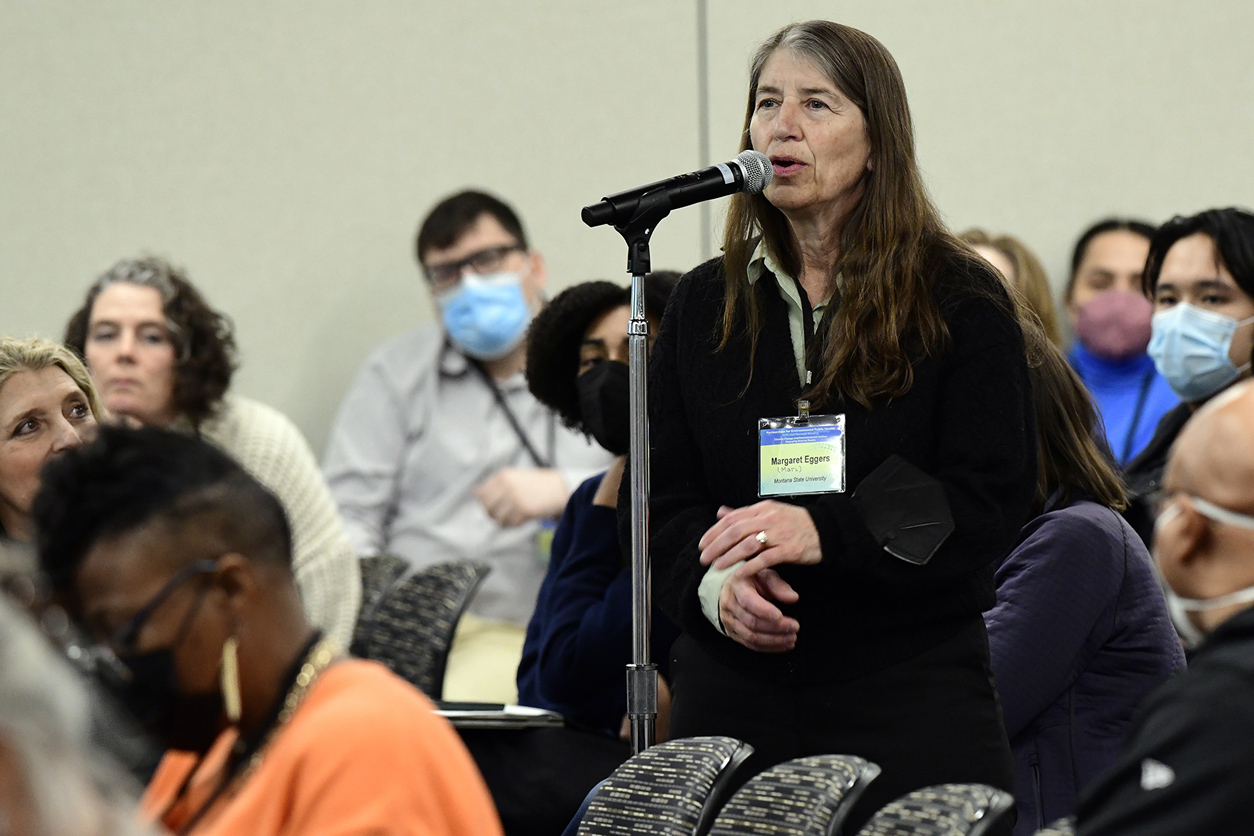
A highlight of the meeting was the open mic session with NIEHS Director Rick Woychik, Ph.D. The session enabled participants to ask questions, mention opportunities and challenges, and suggest beneficial systematic changes. The discussion included the following.
- Strategies to increase NIEHS-funded projects in parts of the United States that have not often received grant funding.
- The review process and the need for appropriate expertise. Participants were encouraged to be a part of review panels, if asked.
- Approaches for building community and university partnerships to establish the necessary infrastructure to successfully apply for NIH/NIEHS funding.
- The importance of sharing success stories, such as the Oceans and Human Health initiative, to help others.
- Approaches for increasing environmental health capacity in environmental justice communities by supporting their students and improving access to environmental health degree programs.
“Thank you for your comments, questions, and recommendations,” Woychik said during his closing remarks. “These conversations are important for us to consider as we begin to implement our next strategic plan.”
All in all, PEPH 2024 served as a springboard for new connections and ideas.
“PEPH is truly a unique merging of environmental and public health,” said attendee Carol Kwiatkowski, Ph.D. “There is nothing else like it!”
(Devan Moore is an environmental scientist and meeting specialist for Avanti Corporation, a contractor for the NIEHS Division of Extramural Research and Training.)





